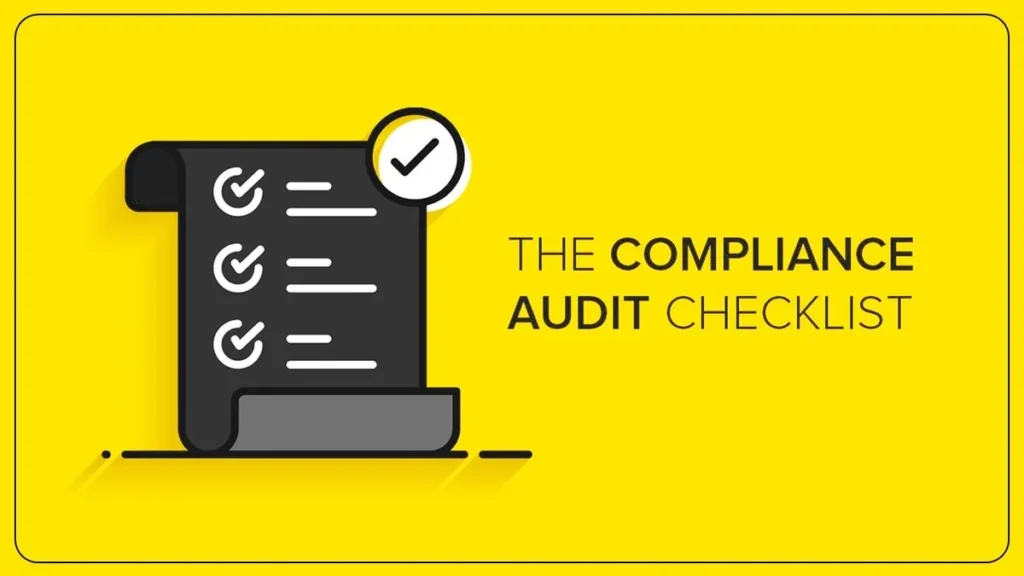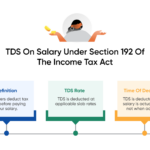Creating a Tax Compliance Checklist for Your Business
Introduction: Staying Ahead of Tax Obligations in India
Navigating the Indian tax system can often feel like trying to solve a complex puzzle, especially with rules and regulations that seem to constantly evolve. For small business owners and even salaried individuals venturing into business, staying compliant isn’t just good practice; it’s absolutely crucial. Failing to meet tax obligations on time can lead to significant financial penalties, stressful legal battles, and can severely hinder your business operations. More than just avoiding trouble, proactive tax compliance builds credibility with banks, investors, and customers, paving the way for sustainable growth. This is where a well-structured tax compliance checklist becomes an invaluable tool. Think of it as your roadmap through the tax landscape, ensuring you know what’s due, when it’s due, and that you have everything organized. This guide aims to simplify the process, helping you create a robust tax compliance checklist tailored for your specific needs and ensuring smooth business tax compliance India.
Why Every Indian Business Needs a Tax Compliance Checklist
Creating and diligently following a tax compliance checklist might seem like extra administrative work, but the benefits far outweigh the effort. It acts as a fundamental pillar for responsible business management in India. Ignoring compliance can have serious repercussions, while embracing it offers tangible advantages that contribute directly to your company’s health and longevity. Let’s break down why this checklist is non-negotiable.
Avoiding Costly Penalties and Legal Troubles
The most immediate benefit of a tax compliance checklist is safeguarding your business against financial drain and legal complications. The Indian tax authorities impose strict penalties for non-compliance, which can include hefty late filing fees, substantial interest charges on unpaid taxes, and in severe cases, prosecution. These penalties can quickly accumulate, eroding profits and potentially jeopardizing the financial stability of your business. A checklist ensures you are aware of all deadlines and requirements, drastically reducing the risk of accidental omissions or delays that trigger these costly consequences.
Maintaining Financial Health and Business Reputation
Consistent tax compliance sends a strong positive signal to stakeholders, including banks, investors, suppliers, and customers. When seeking loans or investment, financial institutions heavily scrutinize your compliance history; a clean record significantly improves your creditworthiness. Furthermore, adherence to tax laws demonstrates ethical business practices, enhancing your company’s reputation and building trust within the market. A good reputation is an invaluable asset, attracting better business opportunities and fostering long-term relationships. Think of your Indian business tax checklist as a tool for building this crucial trust.
Simplifying Audits and Assessments
Tax audits and assessments are a reality for many businesses. Facing scrutiny from tax authorities can be intimidating and disruptive if you’re unprepared. However, a business that uses a comprehensive checklist inherently maintains organized records and follows systematic procedures. This means when an assessment notice arrives, you can quickly retrieve necessary documents, challans, and return acknowledgements. An organised approach, guided by your checklist, makes the audit process smoother, less stressful, and significantly faster, allowing you to resolve queries efficiently and get back to focusing on your business. It provides a clear tax compliance framework India.
Key Tax Obligations for Your Indian Business Checklist
A comprehensive tax compliance checklist must cover the specific taxes applicable to your business. While the exact list depends on your structure, turnover, and industry, certain obligations are common across most Indian businesses. Here’s a breakdown of the key areas to include:
Goods and Services Tax (GST) Compliance
GST is a cornerstone of India’s indirect tax system. Understanding its components is crucial.
- GST Basics: GST subsumed many indirect taxes. It primarily has three components: Central GST (CGST) levied by the Centre, State GST (SGST) levied by the State (for intra-state supplies), and Integrated GST (IGST) levied by the Centre (for inter-state supplies and imports).
- Registration: Businesses exceeding a specified turnover threshold (currently ₹40 lakhs for goods suppliers and ₹20 lakhs for service providers in most states, with lower thresholds in special category states) must register for GST. Registration is also mandatory under certain other conditions, irrespective of turnover (e.g., inter-state suppliers, e-commerce operators). For more insights, read Launching Your Startup Right – Mastering GST Registration in India.
- Return Filing: This is a major recurring activity. Key returns include:
- GSTR-1: Statement of outward supplies (due monthly or quarterly under the QRMP scheme).
- GSTR-3B: Summary return and tax payment (due monthly or quarterly under QRMP).
- GSTR-9/9C: Annual Return and Reconciliation Statement (due annually).
- Accurate and timely filing is essential to avoid penalties and interest.
- Input Tax Credit (ITC): Businesses can claim credit for GST paid on inputs (goods/services used for business). However, strict rules apply. Accurate claiming and reconciliation with supplier data reflected in GSTR-2A/2B are vital to avoid disputes and reversals.
- E-invoicing & E-way Bills: Businesses exceeding certain turnover thresholds must generate electronic invoices (e-invoices) for B2B transactions. E-way bills are required for transporting goods exceeding a specific value threshold.
- Official Resource: Always refer to the official GST Portal for the latest rules and updates.
Income Tax (IT) Compliance
Direct taxes, primarily Income Tax, form another critical compliance area.
- Basics: Income tax applicability varies based on your business structure. Proprietorships and Partnerships are taxed differently from Limited Liability Partnerships (LLPs) and Private Limited Companies. Understanding the applicable tax slabs or rates for your entity is the first step.
- Advance Tax: Businesses anticipating a tax liability exceeding ₹10,000 in a financial year must pay Advance Tax in quarterly instalments. The deadlines are typically June 15th, September 15th, December 15th, and March 15th. Failure to pay on time attracts interest. Delve deeper into this topic by reading Understanding and Managing Advance Tax Payments.
- TDS/TCS: Tax Deducted at Source (TDS) and Tax Collected at Source (TCS) are significant compliance responsibilities. Businesses must deduct or collect tax on specified payments/receipts (e.g., salaries, rent, professional fees, contract payments, sale of certain goods) at prescribed rates. This tax must be deposited with the government by the due date (usually the 7th of the next month), and quarterly TDS/TCS returns (Form 26Q, 27Q, 24Q, 27EQ) must be filed electronically. Non-compliance leads to interest, penalties, and disallowance of expenses.
- ITR Filing: All businesses must file an Income Tax Return (ITR) annually, declaring their income, deductions, and tax liability. Different ITR forms apply based on the business structure and income type. The typical deadline for businesses requiring an audit is October 31st, while for others, it’s July 31st (subject to extensions). This is a crucial item for any
tax checklist for companies Delhior any other city. - Official Resource: For all income tax related information, consult the Income Tax Department portal.
Other Essential Statutory Compliances
Beyond GST and Income Tax, your checklist might need to include these depending on your business:
- Payroll Compliance: If you employ staff, you likely need to comply with Provident Fund (PF) and Employee State Insurance (ESI) regulations. This involves:
- Registering under the respective Acts once you cross the employee threshold.
- Deducting employee contributions and adding employer contributions.
- Depositing these contributions monthly by the due date (usually the 15th).
- Filing monthly and annual returns.
- Corporate Filings (ROC): Private Limited Companies and LLPs have mandatory annual filing requirements with the Registrar of Companies (ROC). This typically includes:
- Annual Return: (Form MGT-7/7A for Companies, Form 11 for LLPs) summarizing information about directors, shareholders, etc.
- Financial Statements: (Form AOC-4 for Companies, Form 8 for LLPs) containing the Balance Sheet and Profit & Loss Account.
- Missing these deadlines attracts significant additional fees.
- Professional Tax: This is a state-level tax levied on professions, trades, and employment. Applicability, rates, registration requirements, and payment/return frequencies vary significantly from state to state. For example, businesses operating in Maharashtra need to factor this into their
tax compliance guide Mumbai, while those in Karnataka must consider it tocreate tax compliance Bangaloreprocedures. Check your specific state’s regulations.
Building Your Custom Tax Compliance Checklist: A Step-by-Step Guide
A generic template is a start, but a truly effective tax compliance checklist is customized to your unique business circumstances. Here’s how to build yours:
Step 1: Identify ALL Applicable Taxes
Begin by listing every single tax and statutory obligation relevant to your business. Consider your:
- Business Structure: Proprietorship, Partnership, LLP, Private Limited Company? To explore structures in detail, read Comparing Business Structures: Private Limited, LLP, OPC & More.
- Industry: Are there specific levies like cess or industry-specific regulations?
- Turnover: Does your turnover trigger GST registration, e-invoicing, or mandatory audits?
- Activities: Do you import/export? Do you employ staff? Do you deal in specific goods/services attracting TDS/TCS?
- Location: Are there state-specific taxes like Professional Tax (mandatory for businesses in Mumbai, Pune, Bangalore, Kolkata etc.) or other local levies? Your
tax compliance checklist Chennai,Pune tax compliance checklist,business tax checklist Kolkata, orJaipur business tax frameworkneeds will differ based on state laws.
Step 2: Map Out Key Deadlines
Once you know what applies, map out when each compliance task is due. Create a compliance calendar. Categorize deadlines:
- Monthly: GST returns (GSTR-1, GSTR-3B), TDS/TCS deposit, PF/ESI deposit, Professional Tax payment (in some states).
- Quarterly: Advance Tax instalments, TDS/TCS return filing.
- Annually: Income Tax Return (ITR) filing, GST Annual Return (GSTR-9/9C), ROC filings (AOC-4, MGT-7/7A, Form 11, Form 8), Final Professional Tax return (in some states).
This calendar forms the core of your tax compliance checklist, providing a clear overview of upcoming obligations.
Step 3: Assign Responsibility
Compliance doesn’t happen automatically. Clearly designate who is responsible for each task on your checklist. This could be:
- An internal accounts person or team.
- The business owner themselves (common in very small setups).
- An external consultant or firm (like TaxRobo).
Accountability is key. Ensure the assigned person understands the task, the deadline, and the consequences of failure. Regular follow-ups are essential.
Step 4: Implement Robust Documentation & Record-Keeping
Compliance relies heavily on accurate and organized records. Your system should ensure easy retrieval of essential documents. Your checklist should ideally reference where key documents are stored. Maintain records like:
- Sales Invoices (especially crucial for GST, including e-invoices if applicable).
- Purchase Invoices (vital for claiming Input Tax Credit).
- Expense Bills and Vouchers (for Income Tax calculations).
- Bank Statements (for reconciliation).
- Payment Challans (proof of tax deposit – TDS, Advance Tax, GST, PF/ESI).
- Filed Return Acknowledgements (ITR, GST, TDS, ROC).
- Contracts and Agreements (relevant for TDS applicability).
Proper documentation is non-negotiable, whether you need a business tax checklist Kolkata or anywhere else in India.
Step 5: Schedule Regular Reviews and Updates
Tax laws, regulations, and government portals change frequently. Your business also evolves. Therefore, your tax compliance checklist is not a one-time document. Schedule regular reviews:
- Quarterly: A quick check to ensure ongoing tasks are on track and to note any minor procedural changes.
- Annually: A thorough review after the Union Budget and any significant changes in GST or Corporate Law.
- Ad-hoc: Update immediately if your business structure, turnover bracket, or primary activities change significantly.
Keeping the checklist current ensures its continued relevance and effectiveness.
Leveraging Technology and Professional Expertise
Managing tax compliance manually can be overwhelming, especially as your business grows. Thankfully, tools and professional help are available.
Using Accounting & Compliance Software
Modern accounting software often includes modules for tax compliance. These tools can:
- Generate GST-compliant invoices (including e-invoices).
- Automate calculations for GST, TDS, and sometimes even payroll taxes.
- Provide reminders for upcoming deadlines.
- Help prepare data for return filing.
- Facilitate bank reconciliation.
Investing in suitable software can significantly reduce manual errors, save time, and improve overall efficiency in managing your tax obligations.
When to Seek Professional Help (TaxRobo)
While software helps, the complexities of Indian tax law often require expert knowledge. Consider outsourcing or seeking professional consultation when:
- Compliance becomes too time-consuming, diverting focus from core business activities.
- You lack in-house expertise, especially for complex areas like GST reconciliation, TDS intricacies, or international transactions.
- You want assurance of accuracy and minimization of non-compliance risks.
- You need help with specific registrations, filings, or responding to departmental notices.
Expert firms like TaxRobo offer comprehensive services covering GST Filing, ITR Filing, Accounting and Bookkeeping, ROC Compliance, and Audit Services. Leveraging such expertise ensures accurate business tax compliance India, helps businesses effectively create tax compliance Bangalore frameworks, and provides reliable Pune tax compliance checklist support, freeing you to focus on growth.
Conclusion: Proactive Compliance for Business Success
In the dynamic Indian business environment, proactive tax compliance is not just a legal necessity; it’s a strategic advantage. Creating and diligently using a tailored tax compliance checklist transforms a potentially chaotic process into a manageable routine. It provides clarity on obligations, ensures timely actions, and fosters a culture of financial discipline within your organization.
By systematically addressing GST, Income Tax, TDS, payroll, and other statutory requirements, you safeguard your business from hefty penalties and legal issues. More importantly, you build a foundation of trust and credibility, enhance financial health, and simplify interactions with tax authorities. Remember, the goal is peace of mind, cost savings, and the freedom to concentrate on what you do best – growing your business.
Start building your tax compliance checklist today. Map out your deadlines, assign responsibilities, and establish robust record-keeping. If the complexities seem daunting, don’t hesitate to seek expert help. For comprehensive support ensuring accurate business tax compliance India, whether you need a specific tax compliance checklist Chennai or guidance on the broader tax compliance framework India, contact TaxRobo. Let us handle the compliance burden, so you can focus on achieving business success.
Frequently Asked Questions (FAQs)
Q1: What are the most common tax compliance mistakes small businesses make in India?
Brief Answer: Common errors include missing filing deadlines (GST, ITR, TDS), making incorrect GST filings or improper Input Tax Credit (ITC) claims, failing to deduct or deposit TDS correctly, and maintaining poor or incomplete financial records.
Q2: How often should I update my tax compliance checklist?
Brief Answer: Your tax compliance checklist should be reviewed and updated at least once a year, ideally after the Union Budget. Additionally, update it whenever there are significant changes in tax laws, GST council notifications, regulatory updates, or substantial changes in your business structure, operations, or turnover.
Q3: Can I use a generic tax compliance checklist template found online?
Brief Answer: Online templates can be a useful starting point. However, they are often too generic. You must customize any template significantly to reflect your specific business type (proprietorship, company, etc.), industry, annual turnover, number of employees, and geographic location(s) to include state-specific taxes like Professional Tax applicable in states like Maharashtra (Mumbai/Pune) or Karnataka.
Q4: What are the consequences of missing a tax deadline in India?
Brief Answer: Missing tax deadlines typically results in late filing fees (fixed or percentage-based), interest charges calculated on the tax amount due from the original deadline, potential issuance of show-cause notices from the tax department, and a negative impact on your compliance rating (e.g., GST compliance score), which can affect business reputation and ITC claims.
Q5: Does my Indian business tax checklist need to cover state-level taxes too?
Brief Answer: Yes, absolutely. Your Indian business tax checklist must be comprehensive. Besides central taxes like GST (which has state components – SGST) and Income Tax, businesses must identify and comply with applicable state-level taxes. The most common is Professional Tax (in states like Maharashtra, Karnataka, West Bengal, Tamil Nadu, etc.), but others might apply depending on your specific industry and the state(s) you operate in, whether it’s Delhi, Kolkata, or requires understanding the Jaipur business tax framework.



